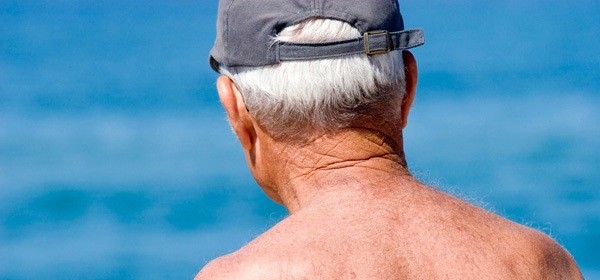Scientists have developed a drug that mimics sunlight to make the skin tan, without exposure to damaging UV radiation.
The lotion works by tricking the body into producing the brown form of the pigment melanin, according to research conducted on skin samples and on mice.
The team of scientists from Massachusetts General Hospital hope their discovery could prevent skin cancer and even slow the appearance of ageing.
The lotion is rubbed into the skin to start the body’s melanin-producing process, which is normally activated by exposure to UV radiation.
Dr David Fisher, one of the researchers, told the BBC News website: “It has a potent darkening effect.
“Under the microscope it’s the real melanin, it really is activating the production of pigment in a UV-independent fashion.”
The fact it is producing real melanin differentiates it from fake tan, which just tints the skin a darker colour, without offering any protection from the sun.
Dr Fisher said the team wasn’t motivated by cosmetic considerations, but said producing the darker melanin provided much better protection against skin cancer.
“Our real goal is a novel strategy for protecting skin from UV radiation and cancer,” he said.
“Dark pigment is associated with a lower risk of all forms of skin cancer – that would be really huge.”
Eventually the scientists want to combine their drug with sun-cream to give maximum protection from solar radiation.
“There is unequivocal evidence that sunscreens are protective against several types of skin cancer,” he said. “But there is also unequivocal evidence that they are not enough. Just look at the data — skin is the most common site of cancer in people despite the embarrassing fact that UV radiation is broadly recognised as a cause in all common forms of skin cancer.”
Some two in three Australians will be diagnosed with skin cancer by the time they are 70, with more than 750,000 people treated for one or more non-melanoma skin cancers each year.
Skin cancers account for around 80 per cent of all newly diagnosed cancers in Australia and we have one of the highest incidences of the disease – two to three times the rates in Canada, the US and the UK.
In 2014, 2067 people died from skin cancer in Australia, 1467 from melanoma and 600 from non-melanoma skin cancers.
Unfortunately, there is still a lot more safety testing required before the new drug is available for human use.
Stopping UV damage could have an extra boon beyond cancer – slowing the appearance of ageing.
Dr Fisher’s final piece of promise for the research is: “Many people would say the obvious and most dramatic sign of ageing is what skin looks like and even casual UV damage over the years causes damage.
“Medically, it is very difficult to focus on, but if it is tremendously safe then it could keep skin healthier for longer.”
Related articles:
Dangerous skin cancer apps
Coffee could combat skin cancer
Spotting the signs of skin cancer

